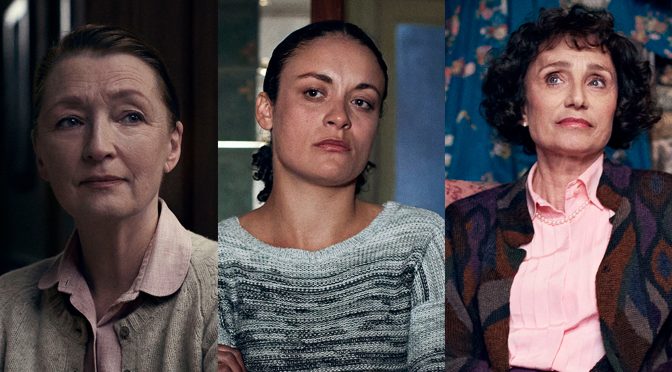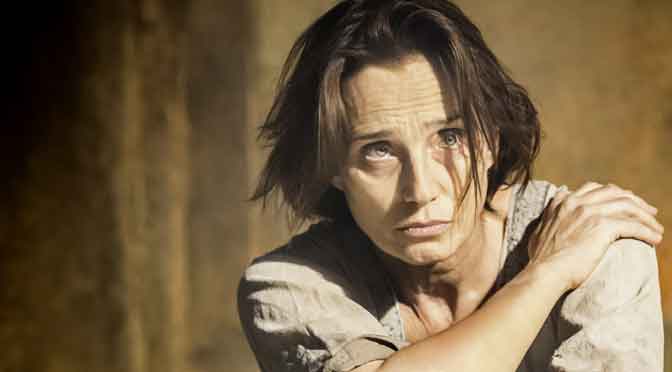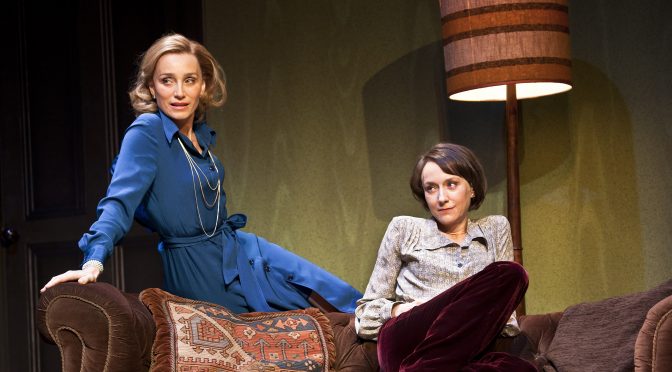Four out of eight… that’s not some strange rating for these shows, far from it, but the number I’ve managed to see in this series of Alan Bennett monologues. The tickets are reasonably priced, the staff on top of social distancing, and creative director Nicholas Hytner’s idea of bringing his lockdown TV shows to the stage (where they clearly belong) is a simply brilliant.
The Shrine & Bed Among the Lentils
First up is Monica Dolan’s brilliant portrayal of a grieving widow. Learning about her husband’s life – after his death – her version of Clifford the bird watcher has to expand to include Cliff the biker. The Shrine is sensitive and often funny. It’s classic Bennett territory, with plenty of wry observation. And an important point about how individual bereavement is.
The accompanying piece has Lesley Manville’s turn as an “upstanding Anglican lady”. Battles with her husband the Vicar, and his fan club parishioners, start well. But does competitive flower arranging sit uncomfortably alongside the AA meetings the character ends up at? It’s Manville who makes the extramarital affair here seem something magical. Another performance not to miss. Both pieces are directed with a sure hand by Hytner.
The Hand of God & The Outside Dog
Another piece is also mostly noticeable for its performance. Did you ever imagine Kristen Scott Thomas could ‘do’ frumpy? The Hand of God is a touch predictable but, with an affecting melancholic air there’s no doubt this is another of Bennett’s strong characters. Playing a small-time antiques dealer, with humour coming from her snobbery, is a real achievement on Scott Thomas’s part.
More impressive – as the performance is excellent and the writing surprising – is The Outside Dog where Bennett moves to less familiar ground. A serial killer’s wife, a role Rochenda Sandall gets lots from, in a script that twists like a thriller. It’s plot driven but note its brevity. While the TV might drag a serial out of something like this (and we’ve all seen plenty on Netflix lately) Bennett and director Nadia Fall cram mystery, drama and emotion in a quarter of an hour – fantastic!
There are four more big stars to come – Lucian Msamati, Imelda Staunton, Tamsin Grieg and Maxine Peake – in two more double bills. This may be bite size theatre, but the season is a big achievement.
Until 31 October 2020
Photos by Zach Harrison



